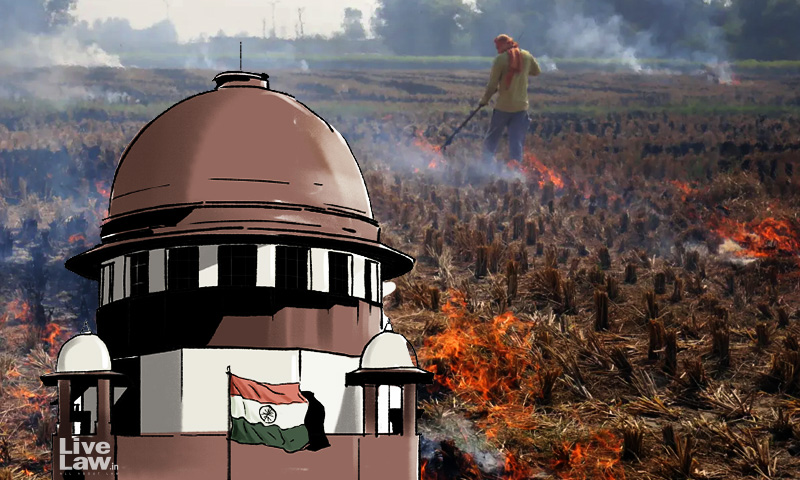 |
|
The Supreme Court of India has launched a scathing critique of the states of Punjab and Haryana, along with the Commission for Air Quality Management in Delhi NCR (CAQM), for their inadequate response to the persistent problem of stubble burning. The court expressed deep disappointment over the lack of stringent penalties imposed on violators of CAQM orders aimed at curbing this environmentally destructive practice, which significantly contributes to the severe air pollution plaguing Delhi and its surrounding regions. The court's strong stance reflects the urgency of the situation, with the annual haze from stubble burning posing a major health risk to millions of residents.
The court specifically highlighted the lenient nature of penalties imposed on farmers who engage in stubble burning, despite the existence of more severe provisions within the CAQM Act and the Environmental Protection Act of 1986. The bench questioned the rationale behind the reluctance to invoke these stricter measures, expressing frustration that discussions and plans appear to lack concrete action. The court pointed to the stark reality that despite the implementation of regulations, there is a demonstrable lack of enforcement, leading to a continuation of the harmful practice.
Further criticism was directed toward the CAQM itself, highlighting the inadequate implementation of its own directives. The bench raised concerns about the qualifications of the CAQM's full-time independent technical members, questioning their expertise and the effectiveness of their role. The court also pointed to the infrequent meetings of the sub-committees tasked with safeguarding and enforcement, emphasizing that only a handful of meetings have been held in the past year, suggesting a lack of proactive monitoring and action. These shortcomings, the court argued, have contributed to the continuation of stubble burning, despite the availability of resources and alternative solutions.
The court further emphasized the importance of deterring stubble burning through stricter enforcement and penalties. The current nominal fines, as exemplified by the mere Rs. 1,25,000 collected from 42 farmers in Punjab for 129 cases of stubble burning, were deemed insufficient to discourage violators. The court stressed that unless a sense of consequence and fear of punitive action is established, the practice will continue to persist. The court also recognized the challenges faced by small and marginal farmers in adopting alternative crop residue management techniques due to financial constraints. However, the court emphasized that the primary focus should be on enforcing the CAQM's existing orders and ensuring their implementation, not just seeking additional funding from the central government.
The Supreme Court's strong directives to the states of Punjab and Haryana, and the CAQM, underscore the critical need for a comprehensive and effective response to the issue of stubble burning. The court's call for stricter enforcement, improved oversight, and a renewed focus on implementing existing regulations presents a clear path forward. The court's intervention highlights the critical role of judicial oversight in addressing environmental issues and ensuring that the actions of government agencies and state governments align with their legal obligations and the well-being of the public.
